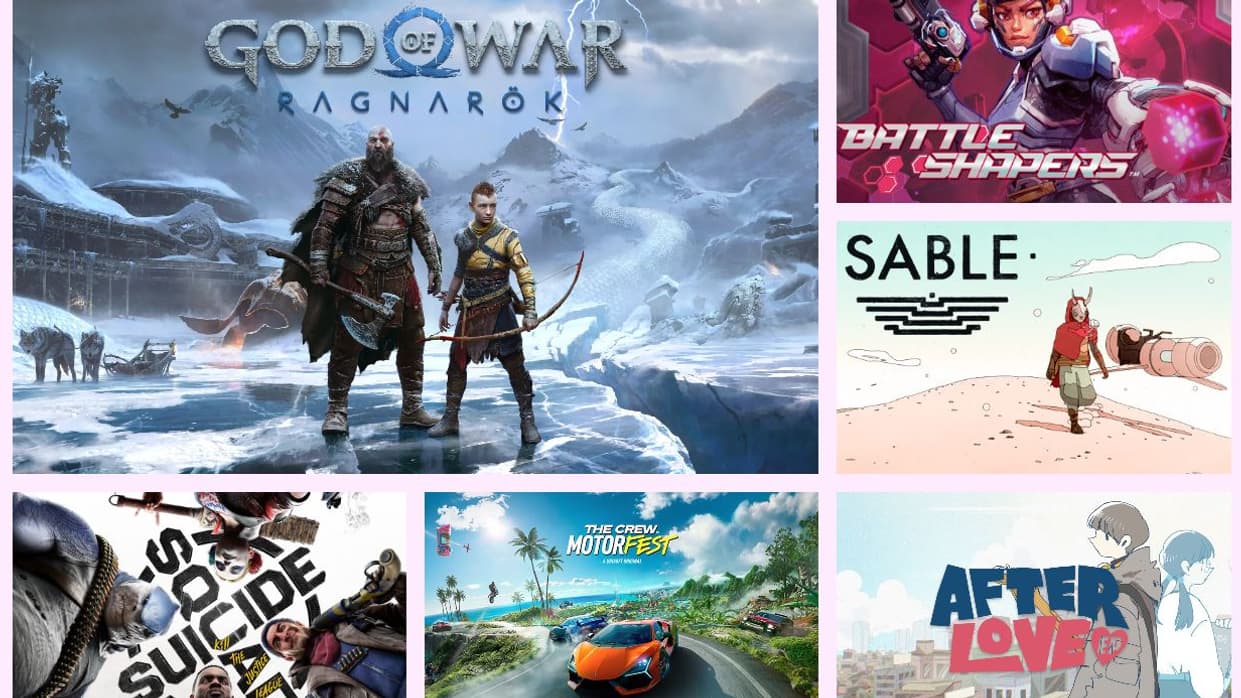In my recent article about the Xbox versus PlayStation beat, I was careless to drop the following phrase: “Now it’s almost impossible to surprise us, the players. Only if you make me angry“
And already in the process of writing this article (read it if you missed it, by the way), I was replaying the same question in my head: “Dmitry Dmitrievich, well, you love to play, so why are you angry at the company and the industry as a whole?»
In fact, in this text I will try to answer it primarily for myself, and at the same time give food for thought to the reader.
Important note: everything is written below – exclusively my personal opinion as the author, I’m not talking about all the gamers in the world, and even less so about my editorial colleagues. This is another important aspect: I am not showing those who shout loudly that the gaming industry is dead.
1. Donation systems in premium projects
 Did you buy the game at full price? Well, that means you can throw in a little more money at the donation store, no big deal
Did you buy the game at full price? Well, that means you can throw in a little more money at the donation store, no big deal
It’s worth starting with what has already been taken for granted. The history of donations in paid games, of course, with the exception of a separate analysis, but right now we can say for sure: the developers are tired of asking for money beyond the cost of the project.
Let’s take the example of the Assassin’s Creed series. In each part of this, for a second, single-player project without multiplayer, in one form or another, microtransactions.
For example, in Assassin’s Creed: Mirage there are a bunch of costumes for the main character that affect his characteristics. And specifically, there are two costumes that are quite developed in the gameplay, and initially you can get them either by donating or by purchasing the deluxe edition of the game. And nothing more.
There are so many examples of mechanics. This year, Dragon’s Dogma 2 is excellent, again a purely single-player adventure, where most of the consumables can be bought in the same quantities and for real money.
 Want to play a full 48 hours ahead of everyone else in a game that takes 8-10 hours to complete? Pay more, friend! To learn how to tell everyone major spoilers, you have the right to do so!
Want to play a full 48 hours ahead of everyone else in a game that takes 8-10 hours to complete? Pay more, friend! To learn how to tell everyone major spoilers, you have the right to do so!
The second annoying thing appeared relatively recently – paid early access.
For example, on 9 numbers a new game about Indiana Jones comes out. But if you bought the premium edition (paid above the price), then please play a couple of days earlier and do not forget to spoil the game. serfswho bought the base edition or even download the game from the Xbox Game Pass library.
There was a similar situation with last year’s Starfied, holding the premium editions, they played a whole week earlier.
The trend of dividing players into premium and Tenov bases with different dates of access to the game reminds me of the vile times of MMOs of the 2000s, when the coolest was the one who brought the most money to the cunning developer.
2. China, which floods the market with clones and casinos.

These are two different games. Find 10 differences
It’s not news that the Chinese have almost always cloned successful games. But now the scale is such that it’s already becoming uneasy.
For example, Arena Breakout is a real clone of Escape From Tarkov, but for free and with a donation. Or the recently announced Light of Motiram – literally a clone of Horizon Zero Dawn, but free-to-play and with an emphasis on survival in the open world.
For some reason, this also includes the hyped Palworld, which is a partial clone of Pokemon with sounds and design elements from The Legend of Zelda.
To be honest, I don’t know what irritates me more – the very fact of their existence or the fact that everyone has to do with it Fine. The same Arena Breakout and Light of Motiram are being praised online with arguments like “the Chinese are great, we did it better and for free.” Just forgetting that it’s free of charge.
Expensive F2P games have long been deeply rooted in the industry, and on the one hand, this is even good. On the other hand, the market is filled with unreliable projects, “motivators”, and monetization projects often resemble casinos.
The attentive reader will remember that I previously praised Genshin Impact and Zenless Zone Zero, and will say that I am contradicting myself.
 Here’s an example of another impersonal Chinese casino disguised as a game made for pennies. There are thousands of them.
Here’s an example of another impersonal Chinese casino disguised as a game made for pennies. There are thousands of them.
And I will answer too much that there seemed to be a lot of them. The news field simply limits the announcements of other traditional games with gacha mechanics, in order to have fun, you must either literally include the consumption of the game in a second job, and remember to close the activity and copy the currency for “spins,” or find a real second job to regularly earn small amounts of money and receive appropriate services.
All this greatly blurs the gamer’s view and distracts attention from really good, albeit paid, projects. We have almost already reached a generation of players for whom buying games is some kind of stupidity, necessary for what reason, when there is a free analogue.
3. DEI, dependence of Western companies on Black Rock investments
 The main principle of Western media at the moment.
The main principle of Western media at the moment.
For the sake of this point, by and large, the article thought about this. I have long wanted to tell you how sincerely I hate the Western industry and why I have long been trying to coexist with new games not from the Japanese.
Let’s start with the basics. What exactly is DEI? It’s an acronym for three words: diversity, equity, inclusion. Translated from English: diversity, equality and inclusion. The concept of DEI has been around for many years, but recently it has been monitored and actively promoted in the gaming industry.
Specifically, everything is connected with the fact: games have become expensive. There is more to be said for the process than before. And even the major studios are no longer coping financially. For example, The Last of Us 2, although it sold a lot of copies, paid off several years after release, all because the development costs were gigantic.
Sony kept the cost of developing TLOU 2 secret for a very long time. However, in 2023, it was accidentally discovered that the game, excluding marketing costs, cost exorbitant amounts $220 million. And Horizon: Forbidden West cost $212 million. And we still don’t know how many from above returned to advertising. It is very, very difficult to recoup such a budget with sales alone.
To begin development at the production stage, it is necessary to attract additional investments.
And at this moment we are leading the story to the Black Rock company.
It is one of the world’s largest companies in terms of assets under management. This company has money almost everywhere, including in the gaming industry.
The key person of the company at the moment is Larry Fink, a man of great power and ultra-democratic views, who belongs to the idea that diversity and inclusion sell best. And, accordingly, the more the development company follows the principles of DEI, the more likely it is that Black Rock will give them money.
And to make it easier for developers, such names of consulting companies have existed for a long time. The most famous (because the employees don’t know how to keep their mouths shut) is, of course, Sweet Baby Inc.
Sweet Baby’s activities are related to “narrative creation” – the refinement of plots and dialogues in computer games. In particular, the company offers advice on “authentic” representation of ethnic minorities in games.

Yes, they even had a hand in God of War.
At the moment, at least 11 large projects are known where changes were made in one way or another by the appointment of specialists from SBI.
For example, Alan Wake 2, where Saga Anderson was initially skin of a different color, and in the end there was no that idiotic remark about the power of men over her. Or Goodbye Volkano High – literally a visual novel about a non-binary person and the world of such progressive students (anthropomorphic dinosaurs). The game is simply replete with flirting with DEI.
Now we are a more or less large Western studio, one way or another, collaborating with private offices in order to receive Black Rock money and reduce our own expenses. The recent Dargon era: Veilguard, simply preventing prohibited propaganda in our country, is such a clear example.
And if you look, there are many, many such examples. Mandatory reference to the different active remedy for females with vitiligo (skin pigmentation disorder) in Call of Duty to rewrite character logic when translated from Japanese to English.
 In a game whose genre, for a second, is dark fantasy, there is a Top Surgery Scars option. By these we mean… scars from gender reassignment surgery.
In a game whose genre, for a second, is dark fantasy, there is a Top Surgery Scars option. By these we mean… scars from gender reassignment surgery.
Yes, the “agenda” has reached the localization of Japanese games. Its appearance, apart from the original language, is not always successful. A good example is the previous The Legend of Zelda: Tears of the Kingdom.
There is one merchant there who, according to the original Japanese text, just sells good stuff. In the Western and, accordingly, Russian localization, he gives Link a targeted lecture on how he will fight capitalism. Why did the context change in the location? And to comply with the agenda.
The Japanese industry as a whole is quite dependent on the focus of Western translators on DEI standards. Publishers and locals in the US and Europe now read Japanese game scripts before translation and provide feedback on what may not be acceptable in their countries and what needs to be changed in Japanese scripts.
And, unfortunately, changes happen constantly, otherwise the game may simply not reach the market, and this is a loss of money.
 Another interesting example. The remake of the classic JRPG, Dragon Quest III, removed the normal gender designation of male/female. Now in the English localization we have a geopolitically neutral “A/B appearance”. It’s a small thing, but the creator of the game said that this is one of the main requirements for localization.
Another interesting example. The remake of the classic JRPG, Dragon Quest III, removed the normal gender designation of male/female. Now in the English localization we have a geopolitically neutral “A/B appearance”. It’s a small thing, but the creator of the game said that this is one of the main requirements for localization.
Unfortunately, at the moment the industry (with rare exceptions) is completely permeated with an orientation towards the so-called. “Progressive modern audience”, every at least Western project, to one degree or another, raises the upper (for the West) problem of protection or decomposes diversity (racial, orientation, political) even where the context does not require it.
What should we ultimately do about it?
Nothing. You can do like me, try to find something good in games and frankly bad things at the table.
The main thing you definitely shouldn’t do is become a fighter against the gaming industry. These are the type of people who haven’t played games for a long time, but know more than anyone else where they inserted a black character and what bad things the former developer said on social networks.
Despite the problems, games can and should be loved. You just need to play only those you like.
It is with this thought that I voice you. Have a good day!
Source: Iphones RU
I am a professional journalist and content creator with extensive experience writing for news websites. I currently work as an author at Gadget Onus, where I specialize in covering hot news topics. My written pieces have been published on some of the biggest media outlets around the world, including The Guardian and BBC News.










